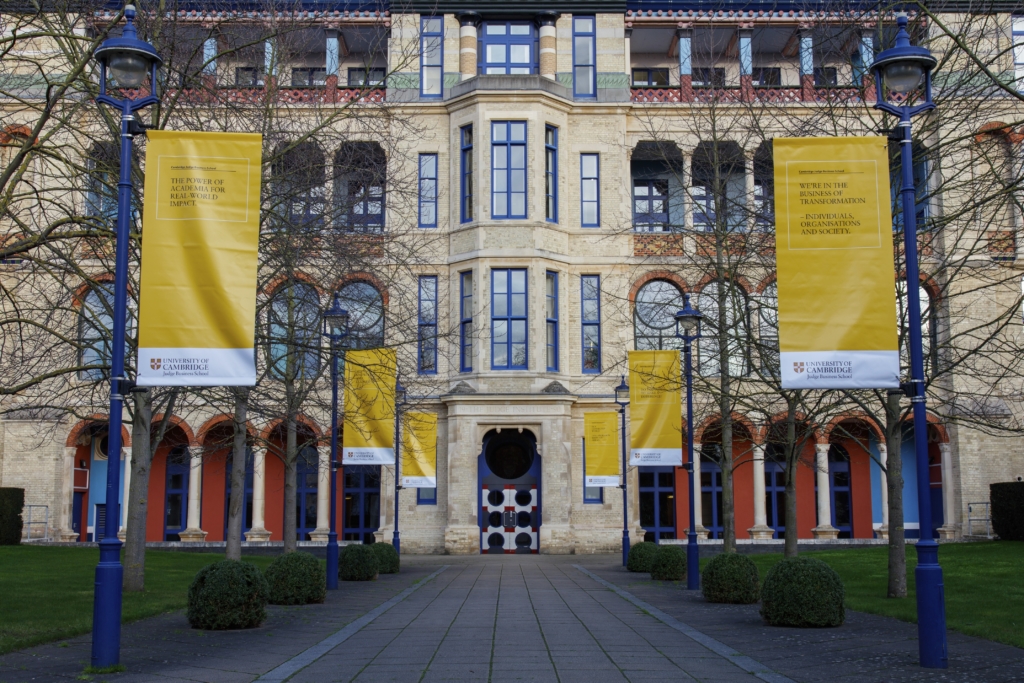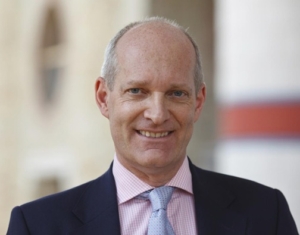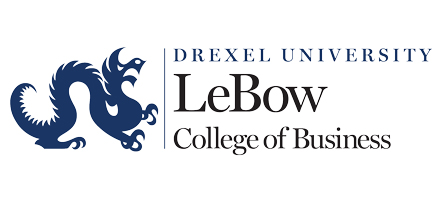
Cambridge Judge Business School is launching a new Global EMBA that will blend in-person classes with live online sessions. Courtesy photo
This spring, Cambridge Judge Business School at the University of Cambridge became the second elite brand to announce a new Global Executive MBA that will combine in-person teaching with online instruction.
The Wharton School at the University of Pennsylvania welcomed its first Global EMBA cohort in May. Instruction in that program is about 75% online, with the other 25% coming from five residential weeks at Wharton’s Philadelphia and San Francisco campuses along with other international locations.
Cambridge Judge’s version, which will enroll its first cohort in January 2024, will be about 25 to 30% online, with a mix of live virtual sessions and asynchronous instruction. Outside of that, students will attend four week-long blocks of in-person instruction at Cambridge along with two more week-long blocks in other countries.
The result: A Cambridge executive MBA program that requires six travel periods instead of the 18 required for its existing EMBA.
“The Global EMBA includes teaching in Cambridge and elsewhere around the world, combined with online sessions that bring a further international element to the program through speakers from across the globe,” says Simon Taylor, Management Practice Professor of Finance and director of the Global EMBA. “Cambridge Judge recognizes that students have different work and personal circumstances, so the Global EMBA represents a program that some individuals may find useful.”
CAMBRIDGE JUDGE EMBA SPOTLIGHT
Cambridge Judge already offers an in-person executive MBA that meets on weekends about once per month. It also requires four week-long sessions which includes an international business study trip.
For this installment of our EMBA Spotlight series, we asked Simon Taylor to tell us about Cambridge Judge’s growing EMBA options and differentiators.
Our conversation, presented below, has been edited for length and clarity.
Let’s start with an overview of the traditional EMBA offering at Cambridge Judge.
What we now sort of called the Cambridge EMBA to distinguish it from the new Global EMBA, has been running for about 16 years. It's a 20-month, part-time program starting in September each year. It consists of mostly weekend teaching, from noon on Friday to late Saturday afternoon, and there's always a dinner with a speaker.
The program starts with a full week in Cambridge, and it finishes with an elective week. Each elective takes place over two consecutive days, and those electives are shared with alumni, which kind of makes them fun and interesting. So, it's bookended by a longer period in Cambridge and in between it's roughly one weekend of in-person teaching a month.
The other part of the teaching is the International Business Study trip, which is a one week trip that can be, really, anywhere in the world. It has been in the U.S., it's been in Latin America, in Europe and in China. It moves around partly according to what seems interesting, what's feasible, and partly according to what the class themselves are interested in doing.
How does the format of the new Global EMBA differ?
The traditional Cambridge EMBA, apart from that one-week International Business Study, is all taught in Cambridge, and you're having to come to Cambridge once a month. That clearly makes it a little bit harder for people that live far away, particularly on the other side of the world. Amazingly, we do get people coming from all over the world, but it's a lot of traveling. So, part of the thought process behind having this new flavor of the EMBA is to make it a little bit easier for people who do live a long way from the UK to take part. That's one key consideration.

Simon Taylor
Other than that they are the same. They have the same syllabus in terms of content, they have the same entry criteria. It's a single entry process, so when you apply you don't have to decide which of these two programs you want to do, you can delay a decision for some time. You have to decide eventually because they're not interchangeable, but they have the same teachers, the same assessment, and you get the same degree.
What the global EMBA does differently is the teaching delivery. So, you have four one-week blocks in Cambridge which is equivalent to about three weekends on the Cambridge EMBA for each block. Then there are two additional weeks that are taught outside the UK. Our strong intention is that those two weeks will be in Shenzhen in southern China. We're not committing to this for the practical reason that we can't absolutely guarantee it will happen, but that was always our plan. The only reason for being a little equivocal is just because stuff happens as we know.
Then there's another roughly two weeks equivalent of teaching, which is taught online through a mixture of live online and asynchronous teaching.
What is the traditional cohort size, and will the Global EMBA add to that? Or is it just a different separation of the same number of students?
We very much hope it will increase the total pool because we are really trying to make it accessible for people who might have looked at the existing EMBA because they couldn’t really go to Cambridge 18 times in 20 months. We have had a few people that switched from the existing EMBA to the global EMBA and that's absolutely fine.
The current EMBA has around 100 people – a little bit more in some years, but less in others. In the first year of the Global EMBA, we'd like to get at least 30 to 40 people. I think that’s a reasonable size to make it work from a peer group point of view and to create some sense of esprit de corps, shall we say. We will be doing a number of things to provide opportunities for the EMBA and Global MBA students to meet up. For example, they will share the electives which will benefit everyone because we'll have a bigger pool of people.
But in the longer term, it's quite possible that it could expand. Anecdotally, people applying are confirming that they probably would not have been able to do the existing version because of the practicalities. They're applying from the U.S., Asia, Africa, and the new format makes it feasible. It's a manageable amount of travel over the roughly 20-month period, so it does seem to be expanding the pool of applicants which is great.
About how much time will the Global EMBA deliver teaching online?
It depends exactly how you measure it. It's either 25 or 30% depending on how you count the asynchronous part, which is study time. It's partly a signal to the students that this is not something you’ll get to sometime. It is work that you do in preparation for the live online sessions. We do exactly the same thing, actually, in a lot of our programs in Cambridge already. We have students, for example, look at pre-recorded lecture material in their own time, but then the live session that follows will be based on that and will build on it. That model actually works really well. It’s something that we kind of stumbled into during the pandemic because we had to, and we've actually now adopted it as what seems to be a better overall educational experience.
What would you say is the differentiator or the unique aspects of the Cambridge EMBA?
I think it is a relatively international cohort compared with many other schools out there. That's true of Cambridge in general, certainly at the graduate level.
I think the second thing is that Cambridge is a pretty interesting place to study because it is itself an interesting kind of ecosystem. I know the word ‘ecosystem’ is a little overused, but in the case of Cambridge, and indeed Shenzhen, it's an appropriate way to describe what is this really interesting, organic and almost kind of magical connection between the university, the local business community, startups, venture capitalists, and in the mature major corporations.
From a business point of view, it's a really interesting, rich environment, which allows us to get speakers from all those different parts of that system and to present something very interesting that goes far beyond what you might think of just the British economy. In that sense, Cambridge has a lot more to offer.
Curriculum wise, what is unique about the Cambridge EMBA?
We have the conventional finance, marketing, organizational behavior, and so forth. I think where we put a slightly different emphasis is on what we call management practise, a word that's meant to capture the sort of interaction between theory and action. I think that's always been quite a strong theme at the business school as a whole.
People used to talk about so-called soft skills, but I think we try to avoid that because it implies it's somehow less important or less robust. For the kind of people doing an EMBA – and our average age on the EMBA is usually around 39 to 40 – these are typically people who have done quite a lot in their careers. They do want to catch up with the latest ideas and data science and so forth. But I think they're really trying to figure out how to be better managers, better leaders, and move into that next stage of their career. So that’s a big part of what we try and help them with. I'm a finance person, but I buy the idea that you can' teach someone how to be a better leader just by following steps A,B, and C. You have to create an environment where you give them a chance to figure out what their own style is, where they may have strengths, weaknesses, how they may need to adapt it to different environments to work with people from other cultures, nationalities and backgrounds.
So we have quite a lot of group work. Again, this is a theme across the whole Judge Business School because that's the best way to try these things out in a safe environment. You know, worst case scenario, and it does occasionally happen, the group falls out. They have a big fight. But it's a safe environment, and hopefully, it's a learning experience.
What kind of student are you targeting?
It’s people who've achieved some level of management expertise or experience, which includes people who set up their own companies. Beyond that, it really could be any industry. Just the other day I interviewed somebody who works for a major international not for profit organization, which has its own challenges.
I think as long as people have something they're bringing to the class and are looking for what they can learn from the other people in the class, then I think we really don't mind who they are, where they're from, or what their experiences are. We tend to end up with a very interesting group of people.
Are there any discussions about possibly expanding opportunities for remote and virtual learning, especially in light of this new model of the EMBA?
I think the conversation is that the Global EMBA, somewhat by accident, is now a bit of a new model. We'll be trying things out, and we're confident we can make it work well. But the evolution of management or leadership education, I suspect, will be more in this direction. I don't think we will ever want to get away from live, face-to-face teaching completely. But I think travel is both time consuming and there's a sustainability issue there. So, if we're going to expand as a business school in a way that is at least reasonably sustainable, we're have to build a new virtual learning environment.
Any recent or upcoming curriculum changes or innovations we should talk about?
We do a review every five years on each of our programs, and there was a whole review of the EMBA curriculum that got somewhat stuck in the middle of COVID. That will be concluded soon.
I don't think we're looking at anything radically different, but there's certainly a shift with sustainability or ESG. It’s already there in the program, but it's definitely getting a greater prominence because it's just the reality of business and government experience.
I think there's also a slightly greater tilt towards what you might call the geopolitical environment. Perhaps regrettably, the external environment is more, well we always use the word ‘challenging,’ don't we? I think ‘difficult’ is a more honest way to put it. It's not something you can do much about, frankly, as an individual or even as a CEO. But I think if you can be more aware of that environment – what may be driving things in future – there's some comfort if you understand it a bit better. It’s not quite so intimidating.
Learn more about the new Global EMBA at Cambridge Judge here.
Note: Round 2 application deadline for the Global EMBA is tentatively set for August 8 while the Round 3 deadline is September 26, 2023. The program will enroll its first cohort in January 2024.
DON’T MISS THESE STORIES IN OUR EMBA SPOTLIGHT SERIES:





Questions about this article? Email us or leave a comment below.